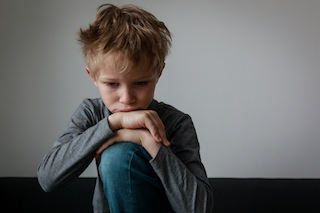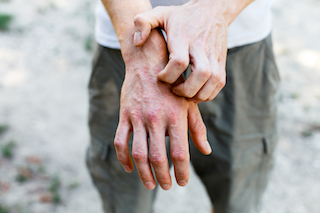May 28, 2019
by Patricia Tomasi

A new study from the University of East Anglia, published in the Journal of Psychology and Psychiatry looked at how common post-traumatic stress disorder (PTSD) is in children and adolescents in the initial weeks and months following a trauma. “Why do some young people show no clinically significant PTSD symptoms early on,” study lead researcher, Dr. Richard Meiser-Stedman told us, “while others show a significant reaction?”
[More]
May 7, 2019
by Patricia Tomasi

Traumatic experiences create long-lasting memories that can negatively impact our lives in a myriad of ways. A common treatment to overcome fear is called exposure therapy, or fear extinction, where patients are repeatedly confronted with the source of the fear. This typically is effective at dampening the fearful response, however, the original fear tends to relapse outside of the clinic, limiting the effectiveness of the treatment. Anthony F. Lacagnina and fellow researchers at the University of Texas at Austin wanted to know how the brain changes to adapt to extinction training, and what happens when relapse occurs.
[More]
February 19, 2019
by Patricia Tomasi

An interesting link has been found between the common skin condition known as eczema and suicide. According to a new study published in JAMA Dermatology, those who suffer from the skin condition, eczema, are at a higher risk for suicidal thoughts and attempting suicide.
[More]
February 14, 2019
by Elizabeth Pratt

UK researchers have confirmed what many have always been thinking: mothers who work full time really are more stressed than their childless counterparts.
[More]
January 28, 2019
by Elizabeth Pratt

If you're feeling stressed, thinking about your romantic partner can provide as much relief as actually having them there with you.
[More]
December 7, 2018
by Kimberly Lucey

As the holiday season approaches, internet search engines are seeing a significant increase in stress related searches. But which states have the largest volume of searches?
[More]
November 8, 2018
by Elizabeth Pratt

People aged 15 to 21 are experiencing significantly higher levels of stress due to what they see in the news when compared with adults. Despite this, Gen Z is less likely to vote.
[More]
October 14, 2018
by Elizabeth Pratt

Political division across the United States is leading to tension in many workplaces, with employees reporting increased levels of stress.
[More]
September 25, 2018
by Patricia Tomasi

According to the United States’ Veterans Association, post-traumatic stress disorder (PTSD) can occur in individuals who have witnessed combat. Research shows that in excess of 20% of veterans who served in Afghanistan and Iraq suffer from PTSD. For some, Accelerated Resolution Therapy (ART) may be the answer.
[More]
September 24, 2018
by Hilda Huj

Over the years Eye Movement Desensitization and Reprocessing (EMDR) therapy has become increasingly
[More]